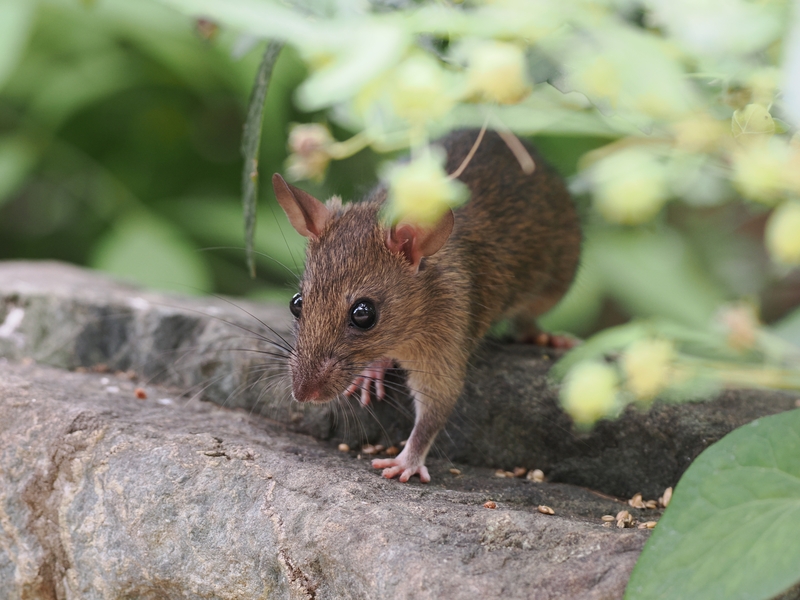Black rat
Rattus rattus

SPECIES PRESENTATION
Scientific name: Rattus rattus
Origin: Southeast Asia, probably India and surrounding regions
Presence in the Caribbean: Widespread throughout the Caribbean, including Guadeloupe, Martinique, Haiti, the Dominican Republic, and many smaller islands
Size: 16 to 22 cm (head and body length, excluding tail)
Weight: 120 to 250 g on average
Diet: Opportunistic omnivore (fruits, seeds, invertebrates, eggs, chicks, small vertebrates, human waste)
The black rat in the Caribbean
Introduced during the era of great maritime explorations, the black rat is now widespread across the insular Caribbean. It thrives in urban and rural areas alike, and is also found on small offshore islets, many of which are critical breeding sites for seabirds.
Its generalist diet makes it a highly impactful predator. The black rat consumes eggs and chicks of ground-nesting birds, often responsible for major population declines and even local extinctions. It also preys on the eggs and young of reptiles, including iguanas and lizards, while feeding on invertebrates and fruits. This adaptability allows it to prosper under a wide range of environmental conditions.
Beyond its ecological impact, Rattus rattus is also a vector of disease, notably as a reservoir of Leptospira, the bacteria responsible for leptospirosis, which affects both humans and domestic animals.
Studies and monitoring within the framework of the CIMBA project
The CIMBA project directly addresses the issue of the black rat:
Improving ecological knowledge: deployment of camera traps in protected areas in Guadeloupe and Haiti to assess the presence, abundance, and activity of black rats.
Measuring real impacts: analyses of the diet (stomach contents and feces, including molecular tools) to identify affected species.
Testing and optimizing control methods: targeted management actions in protected areas, combined with monitoring to assess their effectiveness (rat abundance before/after, recovery of sensitive species).
Informing and raising awareness: regional campaigns to highlight both the ecological and sanitary risks posed by rats and other exotic mammals.
